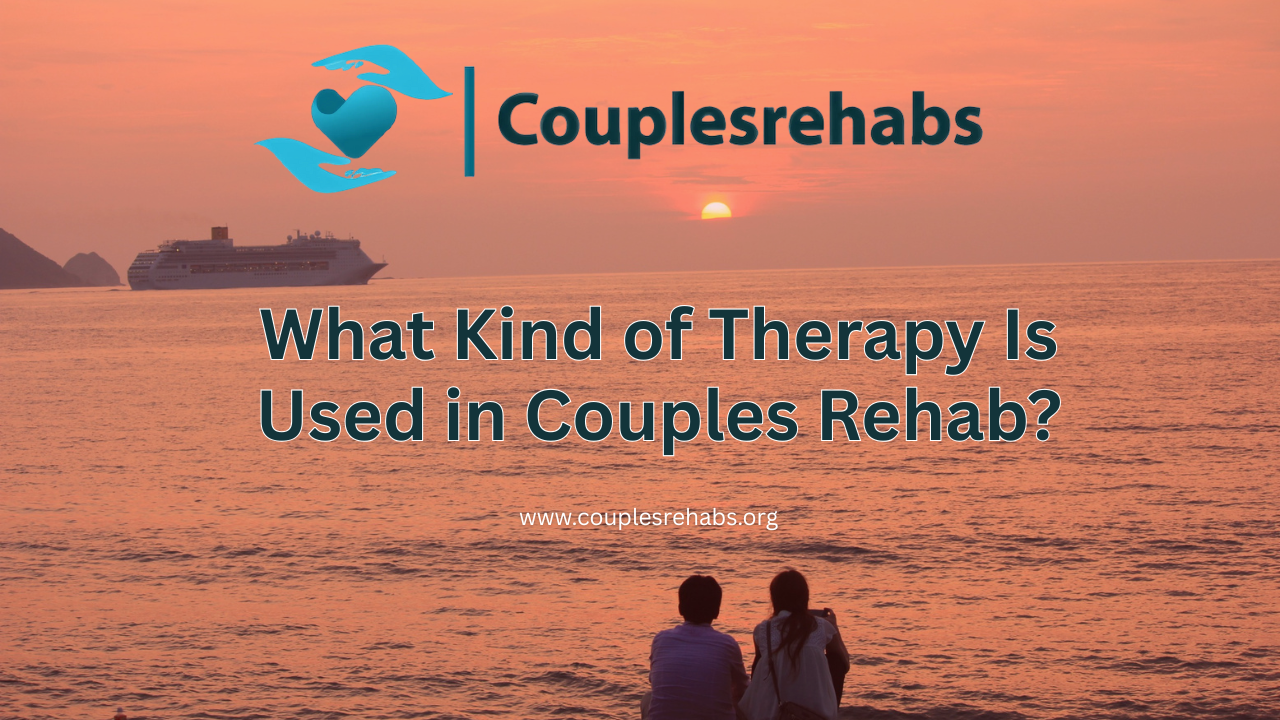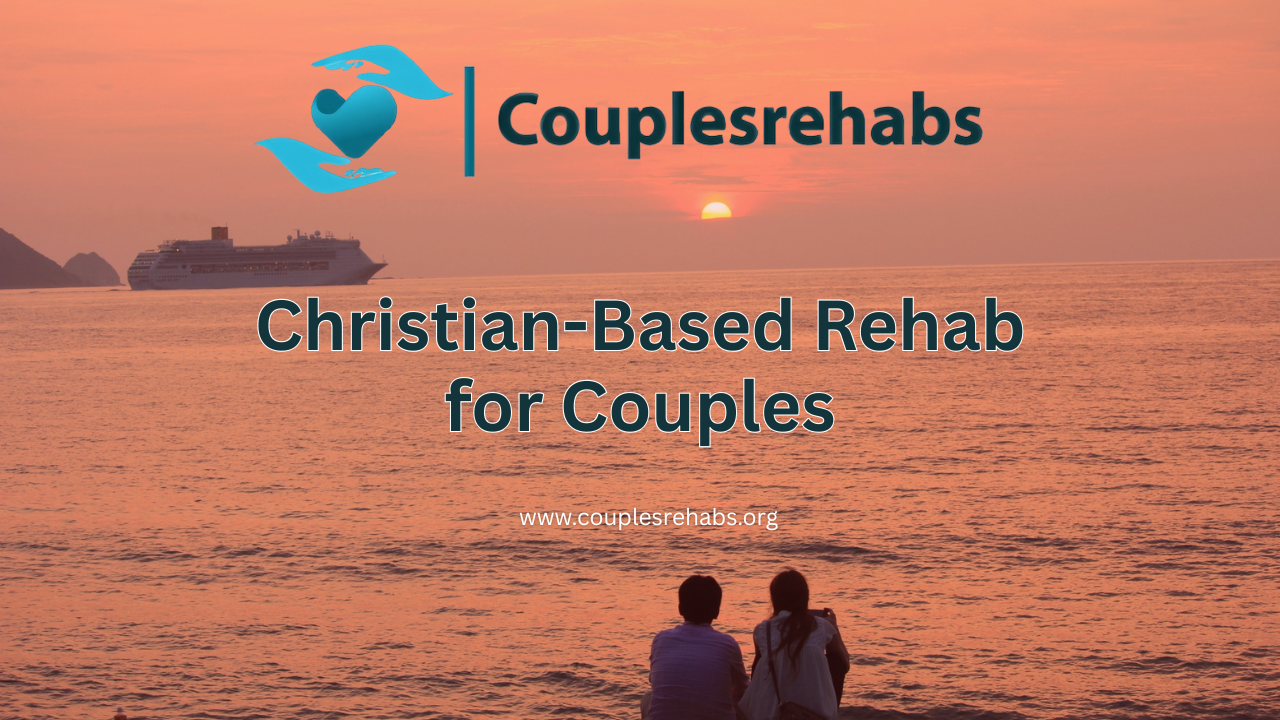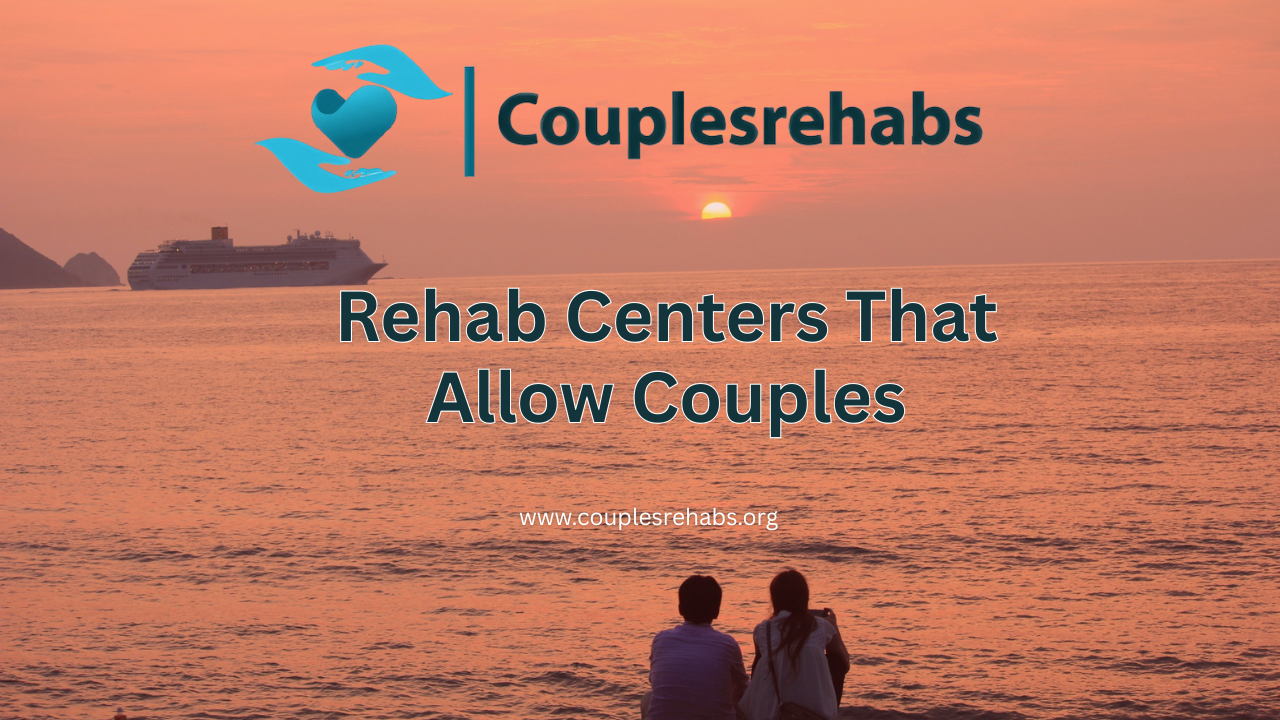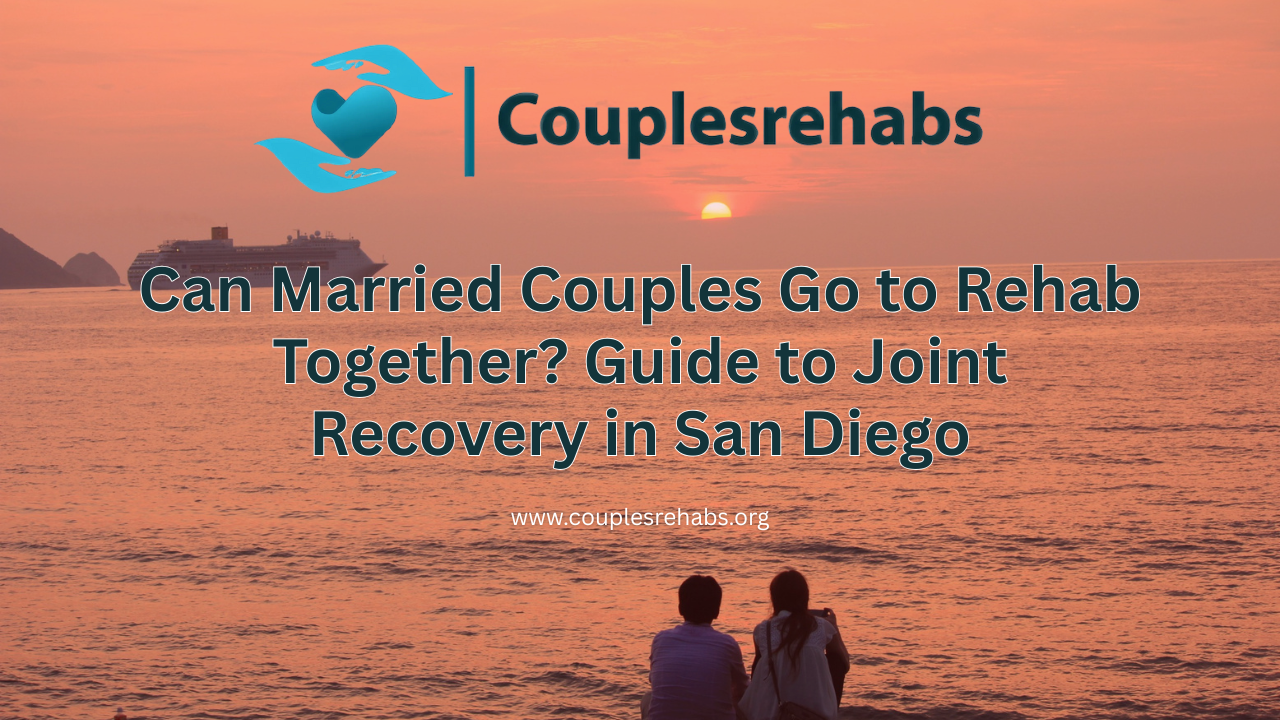What Kind of Therapy Is Used in Couples Rehab?
The question “what kind of therapy is used in couples rehab?” reflects a growing understanding that successful addiction recovery often requires addressing both the addiction and the relationship dynamics that may contribute to or result from substance abuse.
Couples facing addiction together need specialized therapeutic approaches that can simultaneously tackle the complexities of substance dependency while rebuilding trust, communication, and emotional intimacy. Modern couples rehab programs utilize a diverse array of evidence-based therapies, each designed to address different aspects of addiction and relationship dysfunction.
Understanding the Unique Challenges of Addiction in Relationships
Addiction creates a complex web of challenges within romantic partnerships. Unlike individual addiction treatment, couples rehab must navigate the intricate dynamics between two people whose lives have become intertwined with substance abuse patterns. Research conducted by the National Institute on Drug Abuse shows that when one partner struggles with addiction, the other often develops codependent behaviors, enabling patterns, or their own substance use issues.
The therapeutic process in couples rehab recognizes that addiction rarely exists in isolation. Relationship stressors, communication breakdowns, trauma histories, and dysfunctional patterns often both contribute to and result from substance abuse. This creates a cycle where relationship problems fuel addiction, and addiction further damages the relationship.
Successful couples therapy in rehab settings requires therapists who understand both addiction medicine and relationship dynamics. These professionals must be skilled in recognizing how addiction affects attachment styles, intimacy patterns, and daily functioning within partnerships.
Core Evidence-Based Therapies Used in Couples Rehab Programs
Behavioral Couples Therapy (BCT) for Addiction Recovery
Behavioral Couples Therapy (BCT) for addiction stands as one of the most extensively researched and effective approaches in couples rehab settings. Developed specifically for partnerships affected by substance abuse, BCT focuses on changing behaviors that support addiction while simultaneously strengthening the relationship foundation.
The core principle of BCT involves creating daily recovery contracts where the addicted partner commits to sobriety while the other partner agrees to support recovery efforts without nagging or monitoring behaviors. This approach reduces the non-addicted partner’s tendency to become the “addiction police” while increasing accountability in a supportive framework.
During BCT sessions, couples learn to identify triggers that lead to substance use and develop alternative coping strategies together. Therapists guide partners through communication exercises that replace blame and criticism with understanding and support. The therapy includes specific techniques like the “daily sobriety trust discussion,” where couples spend a few minutes each day acknowledging progress and expressing appreciation.
Research published in the Journal of Consulting and Clinical Psychology demonstrates that couples participating in BCT show higher rates of abstinence and relationship satisfaction compared to individual treatment alone.
Cognitive Behavioral Therapy (CBT) in Couples Rehab Settings
Cognitive Behavioral Therapy (CBT) in couples rehab focuses on identifying and changing thought patterns and behaviors that contribute to both addiction and relationship dysfunction. Unlike individual CBT, the couples-focused approach examines how partners’ thoughts and behaviors influence each other’s recovery journey.
In CBT-based couples therapy, partners learn to recognize cognitive distortions that fuel both addiction and relationship conflict. For instance, the addicted partner might struggle with thoughts like “I’m worthless, so why bother trying to quit,” while their partner might think “If they really loved me, they would stop using.” Therapists help couples challenge these thoughts and develop more balanced, recovery-supportive thinking patterns.
The behavioral component involves identifying specific situations, emotions, and relationship dynamics that trigger substance use. Couples work together to develop coping strategies and create environmental changes that support recovery. This might include establishing new routines, avoiding certain social situations, or developing healthy ways to manage relationship stress.
Emotionally Focused Therapy (EFT) for Addicted Couples
Emotionally Focused Therapy (EFT) for addicted couples addresses the deep emotional wounds that often underlie both addiction and relationship distress. Developed by Dr. Sue Johnson, EFT recognizes that humans have fundamental needs for emotional connection and security, and that addiction often develops as a maladaptive way of managing attachment injuries and emotional pain.
In EFT-based couples rehab, therapists help partners understand the emotional cycles that perpetuate both addiction and relationship distress. For example, one partner’s addiction might trigger feelings of abandonment and fear in the other, leading to criticism and pursuit behaviors. The addicted partner, feeling criticized and ashamed, might then use substances to numb these painful emotions, creating a destructive cycle.
The therapy process involves three stages: de-escalating negative cycles, accessing and restructuring underlying emotions, and consolidating new patterns of connection. Couples learn to express vulnerable emotions beneath their anger and defensiveness, creating opportunities for empathy and understanding rather than blame and withdrawal.
The Gottman Method for Couples Struggling with Substance Abuse
The Gottman Method couples therapy for substance abuse brings decades of relationship research to the unique challenges faced by couples in recovery. Based on Dr. John Gottman’s extensive studies of relationship dynamics, this approach focuses on building friendship, managing conflict constructively, and creating shared meaning in the relationship.
In couples rehab settings, Gottman Method therapists help partners identify and eliminate what Dr. Gottman calls the “Four Horsemen” of relationship destruction: criticism, contempt, defensiveness, and stonewalling. These destructive communication patterns are often amplified in relationships affected by addiction, creating additional stress that can trigger relapse.
The method emphasizes building positive sentiment override—the ability to see your partner’s actions in a positive light even during difficult times. For couples in recovery, this skill is crucial because the early stages of sobriety often involve mood swings, irritability, and other challenges that can strain the relationship.
Specialized Therapeutic Approaches for Complex Cases
Dialectical Behavior Therapy (DBT) for Couples in Recovery
Dialectical Behavior Therapy (DBT) for couples in recovery addresses the intense emotional dysregulation that often accompanies both addiction and relationship distress. Originally developed for individuals with borderline personality disorder, DBT has proven highly effective for couples dealing with addiction, particularly when emotional volatility and self-destructive behaviors are present.
DBT teaches four core skill sets that are invaluable for couples in recovery: mindfulness, distress tolerance, emotion regulation, and interpersonal effectiveness. In couples sessions, partners learn to use these skills together, supporting each other’s emotional regulation while maintaining their own stability.
The mindfulness component helps couples stay present during difficult conversations rather than getting triggered into old patterns of conflict or substance use. Distress tolerance skills provide alternatives to using substances or engaging in destructive relationship behaviors when emotions become overwhelming.
Family Systems Therapy for Addiction in Relationships
Family systems therapy for addiction in relationships views the couple as part of a larger family system where addiction serves a function within the overall family dynamics. This approach recognizes that addiction doesn’t exist in isolation but develops and is maintained through interactions within the family system.
In couples rehab, family systems therapists examine how the addiction may be serving to maintain homeostasis within the relationship or extended family. The therapy focuses on identifying and changing family roles, rules, and communication patterns that enable addiction to continue. Couples learn to recognize multigenerational patterns of addiction and dysfunctional relationships.
Trauma-Informed Care for Couples in Rehab
Trauma-informed care for couples in rehab recognizes the high prevalence of trauma histories among individuals struggling with addiction and the significant impact trauma can have on relationships. Studies show that up to 90% of individuals seeking addiction treatment have experienced some form of trauma, making trauma-informed approaches essential in couples rehab settings.
This approach considers how trauma affects brain function, emotional regulation, and relationship patterns. In trauma-informed couples therapy, therapists create safety as the foundation for all therapeutic work. Couples learn to recognize trauma triggers and develop strategies for supporting each other through trauma responses without taking them personally.

Complementary and Holistic Therapies for Couples Addiction Recovery
Motivational Interviewing in Couples Addiction Treatment
Motivational interviewing in couples addiction treatment focuses on enhancing motivation for change while respecting each partner’s autonomy and readiness for recovery. This approach recognizes that partners may be at different stages of readiness for change and that pushing too hard can create resistance.
In couples sessions, motivational interviewing techniques help partners explore their ambivalence about recovery and relationship changes without judgment. This approach is particularly valuable when one partner is more committed to recovery than the other, helping couples work with where each person is in their change process.
Communication Skills Training for Couples in Rehab
Communication skills training for couples in rehab addresses the communication breakdowns that both contribute to and result from addiction. Years of addiction often leave couples with dysfunctional communication patterns characterized by criticism, defensiveness, blame, and emotional reactivity.
The training includes specific techniques for expressing needs and feelings without blame, active listening skills that promote understanding rather than defensiveness, and conflict resolution strategies that help couples work through problems as a team. Partners practice these skills in session with therapist guidance and then apply them to real-life situations.
Holistic Therapies for Couples Addiction Recovery
Holistic therapies for couples addiction recovery recognize that healing involves the whole person—mind, body, and spirit. These complementary approaches help couples develop healthy coping strategies while deepening their connection to themselves and each other.
Couples mindfulness practices help partners develop present-moment awareness that can interrupt automatic patterns of conflict or substance use. Wellness approaches might include yoga, art therapy, or outdoor experiences that promote healing and connection without relying on substances.
How Couples Rehabs Determines the Right Therapy Approach
At specialized treatment centers like Couples Rehabs, determining the most effective therapeutic approach requires comprehensive assessment of both individual and relationship factors. The process begins with detailed evaluations of each partner’s addiction history, mental health status, trauma background, and relationship dynamics.
Therapists consider the type and severity of substance abuse, as different approaches may be more effective for different substances. The assessment also examines relationship factors such as the length of the relationship, communication patterns, levels of commitment to both recovery and the relationship, and the presence of domestic violence or other safety concerns.
Cultural considerations play an important role in treatment planning. Couples Rehabs ensures that therapeutic approaches are culturally responsive and respectful of different backgrounds, beliefs, and values. The assessment process typically involves individual sessions with each partner as well as joint sessions to observe relationship dynamics firsthand.
What to Expect During Couples Therapy in Addiction Treatment
The couples therapy experience in addiction treatment typically begins with establishing safety and stabilization. Early sessions focus on immediate concerns such as managing withdrawal symptoms, ensuring physical and emotional safety, and establishing basic communication ground rules that prevent harmful interactions.
Initial sessions often involve psychoeducation about addiction as a disease and how it affects relationships. This helps reduce blame and shame while increasing understanding and empathy between partners. As therapy progresses, sessions become more focused on specific relationship dynamics and recovery challenges.
The duration of couples therapy in addiction treatment varies depending on individual needs and progress. Some couples benefit from intensive short-term work, while others require longer-term support. Many couples continue with periodic “booster” sessions after completing primary treatment to maintain their progress.
Measuring Success: Outcomes and Long-Term Recovery
Success in couples rehab extends beyond simply achieving sobriety to include meaningful improvements in relationship functioning and overall life satisfaction. Research consistently shows that couples who participate in relationship-focused addiction treatment have better outcomes than those who pursue individual treatment alone.
Studies following couples for two years post-treatment show sustained improvements in both sobriety and relationship quality when evidence-based couples therapy approaches are used. The integrated approach of addressing both addiction and relationship issues creates a synergistic effect where improvements in one area support progress in the other.
Taking the First Step: Beginning Your Journey at Couples Rehabs
Beginning couples rehab represents a courageous commitment to healing both individual and relationship wounds caused by addiction. At Couples Rehabs, the intake process is designed to be welcoming and non-judgmental, recognizing that seeking help requires significant vulnerability and trust.
Couples Rehabs offers various levels of care, from intensive outpatient programs that allow couples to maintain work and family responsibilities to residential treatment that provides 24-hour support during the most challenging phases of recovery. The treatment team works with each couple to determine the most appropriate level of care based on their specific needs and circumstances.
Recovery is possible, and when couples heal together, they create a foundation of mutual support that significantly enhances long-term success. The journey may be challenging, but with professional guidance and evidence-based therapeutic approaches, couples can reclaim their lives and relationships from the devastating effects of addiction.
Frequently Asked Questions About Couples Therapy in Rehab
What is the success rate of couples therapy in addiction treatment?
Research shows that couples who participate in relationship-focused addiction treatment have significantly higher success rates than individual treatment alone. Studies indicate that Behavioral Couples Therapy (BCT) for addiction can improve abstinence rates by 20-30% compared to individual treatment, with benefits lasting up to two years post-treatment.
How long does couples therapy typically last in rehab?
The duration varies based on individual needs and treatment intensity. Intensive outpatient programs may involve 2-3 therapy sessions per week for 12-16 weeks, while residential treatment might include daily couples sessions for 30-90 days. Many couples benefit from ongoing maintenance therapy after completing primary treatment.
Can couples therapy work if only one partner is addicted?
Yes, couples therapy can be highly effective even when only one partner struggles with addiction. The non-addicted partner often develops codependent behaviors or enabling patterns that need addressing. Therapy helps both partners understand their roles in the addiction cycle and develop healthier relationship dynamics.
What happens if we argue during couples therapy sessions?
Conflict during therapy sessions is normal and often productive. Trained therapists at Couples Rehabs are skilled in managing intense emotions and helping couples work through conflicts constructively. These moments provide valuable opportunities to practice new communication skills and address underlying issues.
Is couples therapy in rehab covered by insurance?
Many insurance plans cover couples therapy as part of addiction treatment, especially when it’s deemed medically necessary. Coverage varies by provider and plan type. Couples Rehabs works with various insurance companies and can help verify benefits and coverage options.
If you and your partner are ready to begin your recovery journey together, Couples Rehabs is here to help. Our experienced team of therapists specializes in evidence-based approaches that address both addiction and relationship healing. Contact us today to learn more about our comprehensive couples treatment programs and take the first step toward reclaiming your relationship and your lives.









Recent Comments